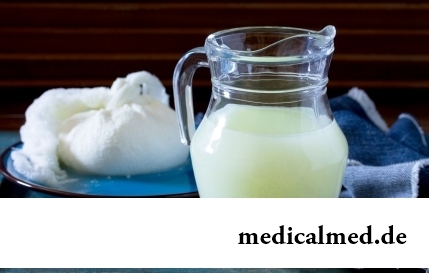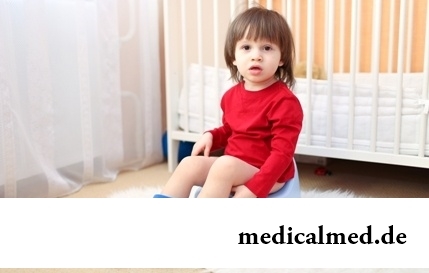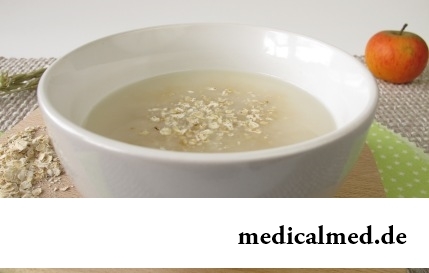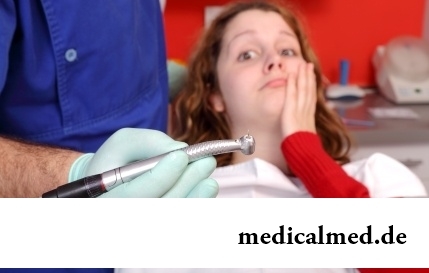





Puerperal depression
The puerperal depression – a type of a clinical depression which influences women is more rare than men, as a rule, after the delivery. According to researches, prevalence of a puerperal depression among women makes from 5% to 25%, among men, in particular young fathers, the frequency of a puerperal depression makes from 1% to 25,5%.
The reasons of a puerperal depression and mechanisms of its identification are up to the end not found out. According to the research conducted in the USA it was revealed that the puerperal depression at women can be predicted from 85% probability on chemical change in DNA of 2 genes by means of blood test during pregnancy.
Sometimes the puerperal depression is confused to puerperal psychosis which effects are much more serious. It meets much less often and is followed by disturbances of process of thinking, nonsense, hallucinations, disorganization of the speech and behavior.
The puerperal depression can result in incompatibility of mother with the child as women with such diagnosis often pay more attention to the negative events connected with care of the child.
Reasons of a puerperal depression
The etiology of a puerperal depression is up to the end not found out. One researches show that are the reasons of a puerperal depression a lack of vitamins B an organism. Other researches show that considerable changes in a hormonal background of the woman are more probable causes of a puerperal depression during pregnancy. However remains not clear why only 10-15% of women have a puerperal depression, changes in a hormonal background happen absolutely at all women in labor.
How many the puerperal depression lasts
The puerperal depression benign (soft short attacks of a depression) begins to develop within the first four or five weeks after the delivery and lasts up to 6 months. In 10-20% of cases the puerperal (perinatal) depression in a severe form (with psychosis attacks) is a consequence of a depression benign and can last about one year and more. Generally, how many the puerperal depression lasts, depends on the person as the main sign of development of a disease is the unwillingness to ask for the help.
Symptoms of a puerperal depression
Symptoms of a puerperal depression are:
- Concern, anger or irritability;
- Grief and grief;
- Feeling of depression and fault;
- Fear to do much harm to the child or itself;
- Excessive concern or total absence of interest in the child;
- Lack of energy;
- Hopelessness;
- Social self-isolation;
- Headaches, stethalgias, cardiopalmus, numbness or pricking in hands or legs, bystry shallow breathing;
- Problems with a dream;
- Lack of appetite;
- Problems with focusing and memory;
- Low self-assessment;
- Impossibility of adoption of simple decisions;
- Decrease in a libido;
- Lack of interest in what interested earlier.
Risk factors of a puerperal depression
Though the reasons of a puerperal depression are up to the end not found out, presumably there is a number of factors which are increased by predisposition to its emergence, their number enter:
- The physiological injuries which arose at the time of delivery;
- The increased prolactin level;
- Oxytocin exhaustion;
- Feeding replacement with a breast by artificial feeding;
- Tobacco smoking;
- Low self-assessment;
- Prenatal depression during pregnancy;
- Low social support;
- The way of life accompanied with constant stresses;
- Negative matrimonial attitudes;
- Lonely marital status;
- Low social and economic status;
- Unplanned or undesirable pregnancy.
These factors, as we know, correlate with a puerperal depression. In this case it is meant correlation that the high level of a prenatal depression is connected with the high level of a puerperal depression, and the low level of a prenatal depression is connected with the low level of a puerperal depression.
Treatment of a puerperal depression
Numerous scientific research and scientific articles support the idea that the puerperal depression will respond to treatment with use of various methods. If the reasons of a puerperal depression are connected with social factors (shortage of money, lack of support), treatment has to be directed to mitigation and building relations with the partner, attraction of the additional help in care of children from relatives, cognitive therapy and other.
Other options of treatment of a puerperal depression include:
- Medical examination to exclude physiological problems;
- Cognitive behavioural therapy (psychotherapy form);
- Reception of special medicines;
- Visit of groups of the help;
- Healthy food;
- Healthy sleep.
The experienced doctor will develop treatment planning of a puerperal depression individually for each case. This plan can include any combination of the stated above treatment options, and also some work with the partner.
To tell even the shortest and simple words, we involve 72 muscles.

Life expectancy in various regions of Earth is not identical. Exert impact on it social stability, economic бл...
Section: Articles about health
Statistically, pathologies of a thyroid gland in the world more than 500 million people have. Failures in work of this body lead to heavy disbolism, development of heart diseases, vessels, a reproductive and nervous system. In hard cases excessive...
Section: Articles about health
The advantage of swimming for the person is so high that this sport is not only the most popular, but also is widely applied in medicine and rehabilitation processes. If you look for for yourself the occupation allowing pleasantly and to spend time, then swimming with advantage – the fact that it is necessary for you. And give learns several facts about swimming....
Section: Slideshow
For anybody not a secret that the modern person eats not as his ancestors. For the last 100 years in broad access appeared with...
Section: Articles about health
Coffee – favourite drink of many. For the last decades it more than once already declared very harmful, extremely useful and even necessary for normal life activity. In spite of the fact that this product became for us usual for a long time, exists much...
Section: Articles about health
The number of long-livers is very small. One person from 5 thousand lives up to age of 90 years, and the centenary boundary steps over only one of 20 thousand. However, doctors claim that each of us is quite able to affect own destiny. At the same time it is not so much about living as long as possible, how many about an opportunity to keep physical and intellectual activity and to avoid decrepitude. We will also talk about the ways helping to achieve this result today....
Section: Articles about health
A little more than a century ago goat milk was a traditional food stuff of most of Russians. Unfortunately, today on tables...
Section: Articles about health
Iodine - one of thirty most important microelements in our organism. The main role of iodine consists in synthesis of thyroid hormones of a thyroid gland - the substances which are responsible for the majority of exchange processes of an organism. It is known that thyroid hormones consist...
Section: Articles about health
Cold, puffiness of a nose, itch, the watering eyes - characteristic symptoms of the allergic rhinitis resulting from hit of allergens (pollen, house dust, hair of animals, etc.) on a mucous membrane of a nose. Unpleasant feelings often give trouble, serving as the reason of a headache, an acrimony, sleep disorders, and in certain cases and the states close to a depression. How to get rid of undesirable satellites of a disease if near at hand there are no antiallergic...
Section: Articles about health
The business lady, the become mother, it is necessary to solve an array of problems. But of them is main: how to combine the beloved child and work?...
Section: Slideshow
One of the useful properties presented to the person by the nature is ability to feel fear. This ability is designed to signal about approach of a dangerous situation and to help to avoid in advance it to keep life. However if the fear is persuasive and not about...
Section: Articles about health
Milk and products of its processing by right occupy one of the main places in a diet of the modern person. They contain proteins, necessary for normal life activity, fats, vitamins and microelements, and are an important part of various medical diets....
Section: Articles about health
The popular expression "run from a heart attack" became the motto of the people supporting active lifestyle. Moreover, run became peculiar...
Section: Articles about health
People know that thermal sources have salutary force long ago. Treatment by natural waters is one of the most ancient methods of disposal of the most different diseases. Bathtubs, souls, wrappings and inhalations, in combination with reception of water vnut...
Section: Articles about health
All parents are ready to what the baby often and pisat much. Since then, as the absorbing diapers strongly became current, keeping of the kid in dryness does not represent any problems. But if the grown-up kid continues to urinate in panties, parents begin to feel concern – whether it is normal, or the kid has an urine incontience? Let's try to understand what is enuresis why it arises at children and at what age it is necessary to begin it to treat....
Section: Articles about health
Sooner or later hair turn gray at all. Many people try to hide these changes, returning natural color of the hair with the help about...
Section: Articles about health
The modern person not always manages to find housing in the environmentally friendly region and such work which would not do harm to health. With food stuffs at first sight the situation is much better: shops are overflowed with goods which are positioned пр...
Section: Articles about health
The Genetically Modified Organisms (GMO) are plants or animals (as a rule, agricultural) to whose genotype purposeful changes were made. Opposition of supporters and opponents of inclusion of such organisms in foodstuff always was very acute. Not only scientists and dietitians, but also a large number of the people who are not specialists in this question are involved in active disputes today....
Section: Articles about health
The main role in development of a peptic ulcer of a stomach and duodenum the bacterium Helikobakter plays pilor. Activity and Wuxi...
Section: Articles about health
Many of us, probably, noticed more than once that from intellectual loadings at some point the brain as though "overheats" and "assimilation" of information is strongly slowed down. Especially this problem urgent for persons of age becomes more senior than fifty years. "It is already bad with...
Section: Articles about health
Zone hypostases under eyes - very widespread problem giving to people is a lot of inconvenience. Hypodermic fabric in these parts has very loose structure and almost does not contain collagenic fibers. Besides, the skin covering подглазья constantly is exposed to compression and stretching when the person blinks, blinks, etc. These features also create premises for emergence of the so-called bags which are giving to the face a tired and sickly look, and also visually adding increased...
Section: Articles about health
Statistically, can only one of ten of our compatriots brag of a decent condition of an oral cavity. On среднестатистич...
Section: Articles about health
Urogenital candidiasis (milkwoman) – a fungal infection which annoys unpleasant feelings in the field of generative organs, being followed by white curdled allocations, an itch, discomfort during an urination, pain. She is called by Candida fungus – a mustache...
Section: Articles about health
Separate food - the system of meal based on digestion physiology which is carried to improvement methods. According to nutritionists, the separate use of the carbohydrate and proteinaceous products demanding different conditions of assimilation helps to get rid of diseases of digestive tract and serves as prophylactic from a diabetes mellitus, arthritis, food allergies, cholelithiasis and many other frustration. The essence of salutary effect of a method consists in most Kacha...
Section: Articles about health
It seems, quite recently you brought the baby from maternity hospital, but time flew by, and here it is already going to join the first...
Section: Articles about health
The unpleasant feelings connected with spring breakdown are familiar almost to each of us. Often happens that in March-April on the person weakness leans: he suffers from drowsiness, complains of bad mood, loss of interest in life and failures in affairs....
Section: Articles about health
With age in a human body harmful substances collect. We receive them with food and water, at inhalation of the contaminated air, reception of medicines, use of household chemicals and cosmetics. A considerable part of toxins accumulates in a liver which main function is continuous purification of blood. This body begins to knock as any got littered filter, and efficiency of its work decreases....
Section: Articles about health
